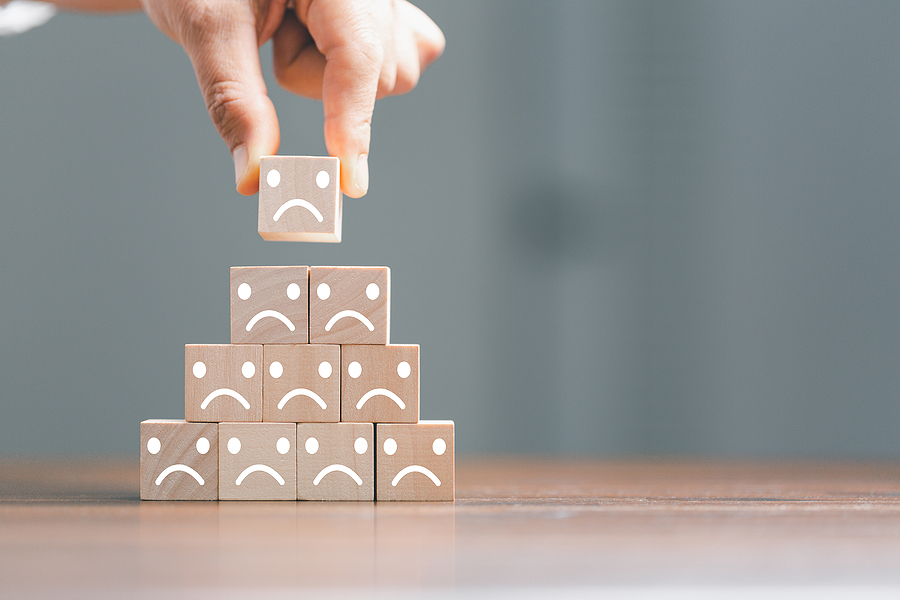Have you ever found yourself focusing more on the negative things in your life while ignoring all the positive stuff?
Well, join the club. This is a common phenomenon that happens to all of us. Myself included.
This kind of thinking is known as mental filtering in cognitive behavior therapy. It’s what happens when you filter out all the good and focus on only the bad.
Why do we do this? It’s because of a psychological phenomenon known as the negativity bias. Negativity bias states that we are naturally biased toward focusing on negative feedback while ignoring positive
Here are a few explanations for the negativity bias.
Negativity bias: Why We Tend to Focus on the Negative
1. Negativity bias allowed us to survive.
Imagine this. You’re living in prehistoric times and are in a small gathering with your family and other people in your tribe. You’re calm, comfortable, and focused on eating wild game over a fire. Everyone is happy and relaxed.
Suddenly, you hear a strange sound in the forest behind you. Although everything around you is great, you can’t stop focusing on that unusual sound in the distance.
In this case, focusing on that strange sound can help with your survival. After all, it might be a wild predatory animal causing those branches to break and leaves to rustle.
According to evolutionary psychology, this is why we tend to pay attention to stimuli that appear unusual or negative. It’s because we’ve evolved to spot the things that stand out. Doing so helped our species survive.
2. Negative events can be more potent.
Another reason has to do with what researchers call negative potency. Essentially, negative events are more powerful or dominant to our emotional systems than positive events.
Here’s an example. Imagine gaining $50. Now imagine losing $50. Although the amount is the same, for some reason, the experience of losing $50 creates a more powerful emotional experience.
Also, humans generally think about adverse events more than positive ones. Even though you might have gained $50, you will likely spend more time thinking about the money you lost rather than the money you earned.
3. Negative events take up more cognitive resources.
Another reason why we tend to focus more on negative events than positive ones is that negative events require more mental energy and mental resources to process than positive events.
For example, when something positive happens in your life, you don’t need to expend any mental resources to interpret or understand what just happened. But when something negative happens, it puts more of a strain on your mental resources. You spend more time thinking and processing an adverse event than a joyous occasion. This extra demand on your mental resources makes the adverse event more noticeable.
4. We are socialized to focus on the negative.
Another reason why we tend to focus on the negative is that we are socialized this way.
For example, if you regularly follow the news, you realize it predominantly contains negative stories. The reality is that negative, shocking, and extraordinary stories attract more viewers and clicks than positive ones. And because we’re socialized in such an environment, we learn to focus more on the negative than the positive.
Thinking of the Negative is a Natural Reaction
Next week, I’ll give you some strategies to handle negativity bias.
Until then, don’t beat yourself up because you tend to focus on the negative. It’s a normal reaction.
Just remember that if you spend time and energy thinking about all the bad and negative things in your life, you also need to be fair to yourself and spend the same amount of time thinking of all the positive things as well.
Richard

